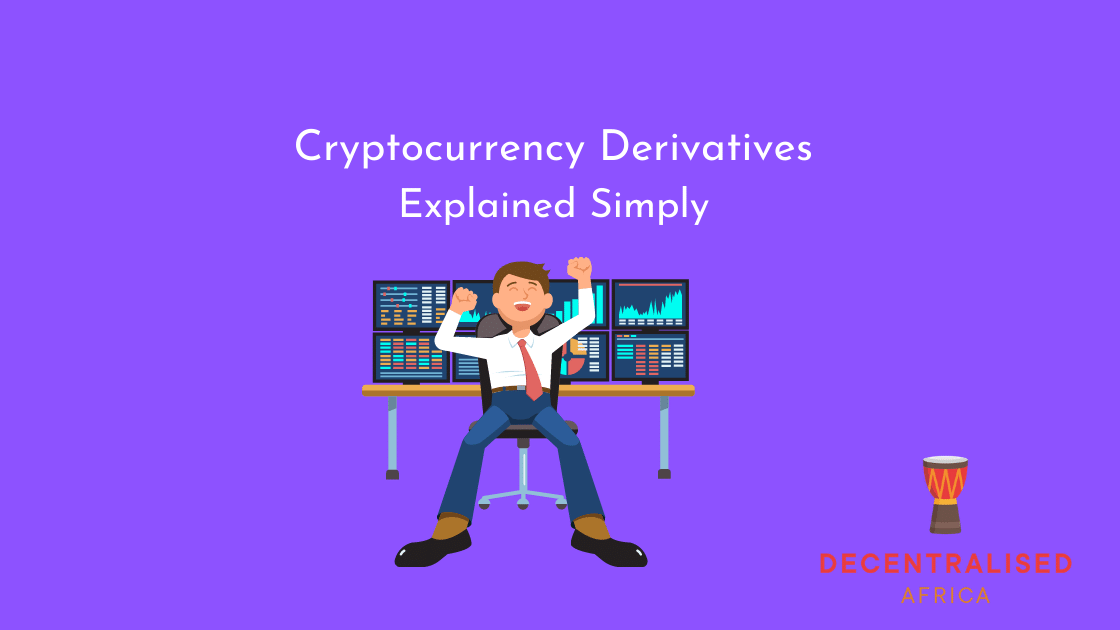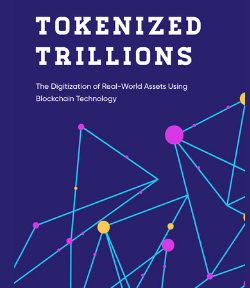
A derivative is a financial product (a contract or security) that gets its value from the performance of an underlying entity such as an asset, index or interest-rate. In essence, without the underlying, derivatives hold no value.
Derivatives are typically used for insuring against price movements (hedging), increasing exposure to price movements for speculation, or getting access to otherwise hard-to-trade assets or markets.
The derivative itself is a contract between two or more parties, and it derives its price from fluctuations in the underlying asset. In crypto, some of the more common derivatives include contract for difference (CFD), exchange for difference (EFD), and Bitcoin futures.
The application of derivatives can bring about good outcomes, as well as bad ones. They can be used to ensure economic growth, serving in the capacity of speculative tools, and they can also shut down a financial system. The negative impact of derivatives was witnessed in 2007 and 2008 when the subprime mortgage meltdown occurred.
According to the Office of the Comptroller of the Currency (OCC) in the US, it is estimated that banks currently have exposure to more than $200 trillion notional worth of derivatives. This highlights how massive the derivatives market is in the traditional banking sector. It is therefore not unreasonable to assume that the market for crypto derivatives will also grow significantly as global adoption of cryptocurrencies continues.
The Chicago Mercantile Exchange (CME) was the first established exchange to launch options on Bitcoin futures. Institutional crypto investors can now trade crypto-derivative on CME.
Forms of Derivatives
There are four main ways derivatives can exist, and they are – options, forwards, swaps, and futures.
Options: this type of derivative works with a specific timeline. It facilitates transactions for buyers or sellers using a particular asset at a pre-ordained price.
Forwards: this is a contract that may be adjusted to suit the specific needs of a trader. The transaction usually takes place on over-the-counter (OTC) exchanges. Forwards are not without risks, so traders should employ good risk management.
Swaps: swaps involve the agreement between parties who intend on making profits through the exchange of cash flows at a preset time in the future. The assets to be exchanged are loans, bonds, or notes.
Futures: under this contract, a trader is compelled to either purchase or sell an asset at a pre-ordained future date and price.
What is a Crypto Derivative?
Cryptocurrency derivatives are contracts that two or more parties sign to either buy or sell a particular digital asset for a predetermined price in the future. Whatever price action the asset experiences will directly influence the value of the contract.
With regards to exchange trading, customer-to-customer (C2C) platforms or exchanges are used by traders. Although the two methods differ in their terms of use, active traders still consider them important.
Why Derivatives Trading is Important
Derivatives have a lot of advantages and for expert traders, here’s why:
Hedging: this is when investors use derivatives to secure their investment portfolio. Derivatives function as risk-management tools for traders. Futures, forwards, swaps and options can all be used to lock in prices and prevent adverse price movements from incurring significant losses to the trader. Through hedging, a position is used by a trader to shield themselves against the market moving out of their favour or erratically.
Speculation: derivatives provide crypto traders with more accurate price predictions. Traders engage in price speculation to take advantage of the price fluctuations of crypto assets.
Reducing Volatility: derivatives were created mainly for traders to better respond to market volatility.
Where To Trade Crypto Derivatives
Due to their sensitive nature, crypto derivatives can only be traded on some platforms. The best place to obtain derivatives for crypto transactions is on crypto exchanges. Before choosing the exchange, the investor should ensure that the platform has good reviews from its users. Some top exchanges that have become famous for derivative trading include Deribit, PrimeXBT, FTX, and BitMEX. Note that there’s yet to be regulation for derivative trading on crypto exchanges. In light of this, anyone making use of derivatives should be prepared for any outcome.
Conclusion
Despite contributing to the global financial crisis that happened in 2007, derivatives remain important financial tools to mitigate investment risks.
Derivatives are an essential part of the crypto market development cycle. As worldwide adoption is the goal of cryptocurrency, digital asset derivatives may be part of the catalyst. Even though significant gains can be realised, caution should be applied when trading derivatives because they are high risk financial products and more often than not, traders lose rather than gain.
Digital asset derivatives remain controversial and regulatory authorities have warned of price manipulation risks. Due to Bitcoin’s liquidity being relatively low, the risk of individual market participants manipulating the spot price by placing large sell orders is high. Traders can bet on falling crypto prices in the derivatives market through the use of futures or options.
Currently, it appears that Asia is the hotbed for crypto derivatives. Many of the most actively traded exchanges are based in this region, particularly in Singapore, since the regulation has been thus far more accommodating then most places in the world. Some of the leading Asia-based exchanges such as OKEx, Huobi and Binance report higher trading volumes in their derivatives markets than in their respective spot markets.







